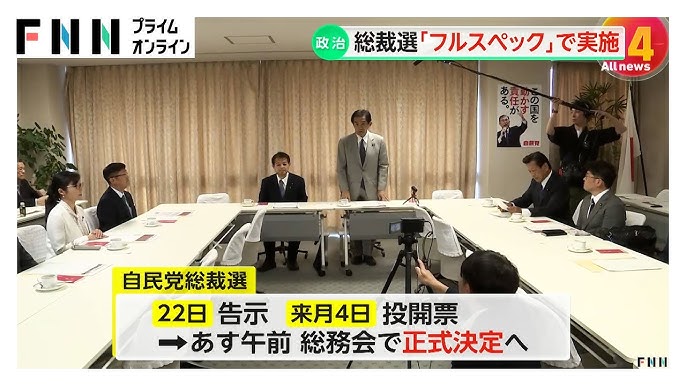The ruling party in Japan, the Liberal Democratic Party (LDP), has announced plans to hold a leadership election on October 4th. The announcement comes in the wake of a political shake-up, prompting a race to replace the current party head. The winner of the election will not only lead the largest party in Japan's parliament but also likely become the country's Prime Minister. Stakeholders from both within and outside the party are closely monitoring the development as it will impact the political discourse in Japan.
In Japan, the head of the ruling party often serves as the Prime Minister. Hence, such a leadership election draws considerable attention from the public, media, opinion leaders, and interest groups. It affects not just the trajectory of party policies, but also the national policies on economic, social, defense, and diplomatic fronts. The event usually elicits extensive discussions and debates regarding potential leaders and the direction they might steer Japan.
In the US or EU, a change in party leadership bears similar significance. For example, in the USA, when a new party chairperson is elected for the Democrats or Republicans, it often triggers policy reviews and redefines the party's stand on various issues. However, unlike Japan, the US party chairperson does not usually go on to become the President.

